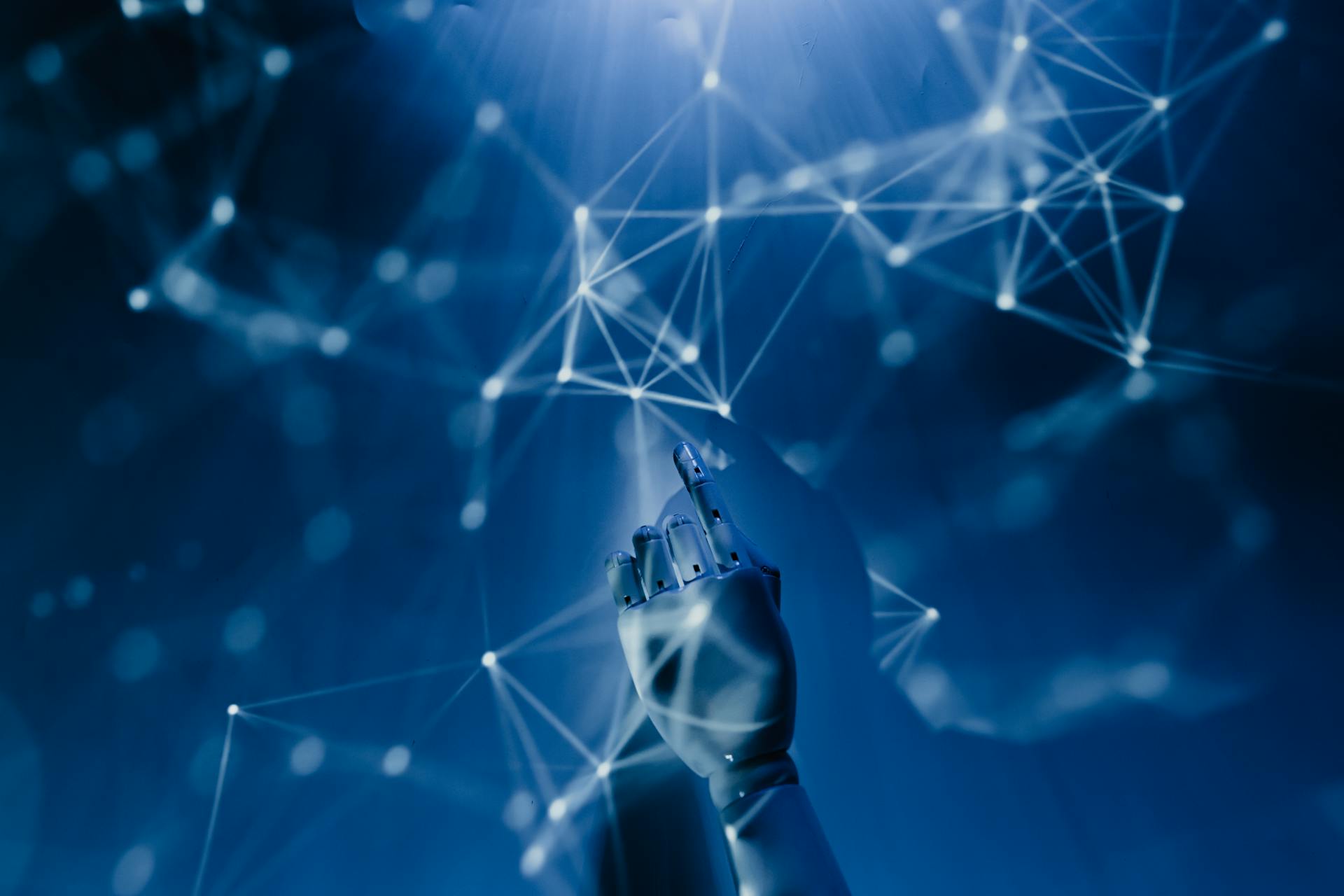Have you ever wondered how technology can help businesses go green? Many companies are looking for ways to protect the environment while staying profitable. AI is changing how businesses work, making them more eco-friendly and efficient.
This blog will show you how AI tools help companies use fewer resources and reduce waste. You will learn how AI improves business processes, saves energy, and cuts down on pollution.

By the end, you will see how AI is shaping a greener future for all of us. Let’s dive in!
AI Makes Work More Efficient
AI helps businesses complete tasks faster. It analyzes large amounts of information in seconds.
This reduces human effort and cuts down mistakes. When businesses work more efficiently, they use fewer resources. That means less waste and lower energy use.
For example, AI can predict how much product a store will sell. This helps stores avoid ordering too much, reducing waste. Factories use AI to monitor machines and prevent breakdowns.
This means fewer repairs and less waste from broken equipment. AI also helps businesses find better ways to use their materials, reducing extra costs.
It can suggest improvements to workflows, making jobs easier for employees. By using AI, businesses can focus more on innovation and growth while helping the environment. As businesses continue to embrace AI to enhance operational efficiency, platforms like Village Labs are leading the way in helping companies optimize workflows and reduce waste. By providing AI-driven insights, Village Labs helps organizations streamline processes and make data-driven decisions that not only improve productivity but also promote sustainability.
AI Reduces Paper Waste
Many businesses still rely on paper. Offices print documents, contracts, and forms every day. AI helps companies switch to digital documents. This means less paper waste and fewer trees cut down.
AI-powered applications help people write documents online instead of printing them. One great example is AI tools that create cover letters.
They help job seekers write perfect applications without printing dozens of drafts. This saves paper while making job applications easier.
AI Saves Energy in Offices and Factories
Electricity use is a big concern for businesses. AI helps lower energy use by making smart decisions. It can adjust heating, cooling, and lighting based on real-time needs.
For example, AI-powered systems can turn off lights in empty rooms. Factories use AI to control machines, running them only when necessary. This lowers electricity bills and reduces pollution from power plants.
AI Helps Reduce Carbon Emissions
For example, delivery companies use AI to find the shortest routes. This saves fuel and lowers pollution. Airlines use AI to plan better flight paths, reducing fuel use and emissions.
AI even helps farmers grow crops using less water and fertilizer, which also cuts pollution.
AI Improves Recycling Efforts
Recycling is important but it can be difficult to manage. AI is making recycling more effective.
Smart robots can sort waste better than humans. They quickly separate plastic, glass, and metals, making recycling faster and more accurate.
Some cities use AI-powered trash bins that recognize recyclable materials. These bins guide people to recycle correctly. This helps reduce the amount of waste that ends up in landfills.
AI can also predict waste patterns, helping cities plan better recycling programs. Some factories use AI to turn waste into new materials, reducing the need for raw resources. AI-powered apps even help people learn how to recycle different materials properly.
With AI’s help, recycling efforts can become more efficient and widespread. As technology advances, AI will continue to make waste management smarter and more effective.
AI Supports Green Transportation
Transportation is a major source of pollution. AI is helping create cleaner ways to move people and goods. Many electric vehicles use AI to improve battery life and energy use.
AI also helps public transportation systems run more smoothly. It predicts traffic patterns and adjusts bus and train schedules to reduce wait times and fuel use. This makes public transport more efficient and eco-friendly.
AI-powered ride-sharing services also help by reducing the number of empty or unnecessary trips. Smart traffic lights use AI to improve the flow of vehicles, cutting down idling time and fuel waste.
Some cities are even testing AI-controlled delivery drones, which lower emissions compared to traditional delivery trucks. As AI continues to improve transportation, we can expect cleaner air and less traffic congestion.
AI Helps Companies Make Greener Choices
Businesses need to make smart decisions to be more sustainable. AI helps them choose the best options. It analyzes data to suggest eco-friendly materials and suppliers.
For example, clothing companies use AI to find sustainable fabrics. Restaurants use AI to track food waste and adjust their orders. This reduces waste while saving money.
AI Is Changing Farming for the Better
Farming uses a lot of water, fertilizer, and land. AI is helping farmers grow food using fewer resources.
Smart AI tools monitor soil conditions and weather. This helps farmers know exactly when and how much to water their crops.
AI also helps farmers use less pesticide by targeting only areas that need treatment. This protects the environment while keeping crops healthy. AI-powered tractors and machines also work more efficiently, reducing fuel use.

AI and Smart Cities
Many cities are using AI to become greener. AI helps manage traffic lights, reducing congestion and pollution. It monitors air quality and helps leaders make better decisions for cleaner air.
Some cities use AI to control water and electricity use. This prevents waste and saves money. AI-powered apps also help people find carpool options and bike-sharing programs, reducing the number of cars on the road.
AI and the Future of Eco-Friendly Shopping
Shopping can create a lot of waste, from packaging to transportation. AI is helping reduce this impact. Online stores use AI to suggest products based on what customers need, reducing unnecessary purchases.
Some companies use AI to design packaging that is biodegradable or easier to recycle. AI also helps retailers track inventory, so they don’t overstock items that might go to waste.
With AI, shopping can become smarter and greener for both businesses and consumers.
The Future of Business Is Greener with AI
AI is making businesses smarter and more eco-friendly. It helps companies reduce waste, save energy, and lower pollution. From improving recycling to making farming greener, AI is shaping a better future for our planet.
Technology is always changing, and AI will continue to improve sustainability. Businesses that use AI can help protect the environment while staying successful. The future of green business looks bright, thanks to AI.
Did this guide help you? Browse the rest of this section for more advice on a variety of useful and exciting topics.



